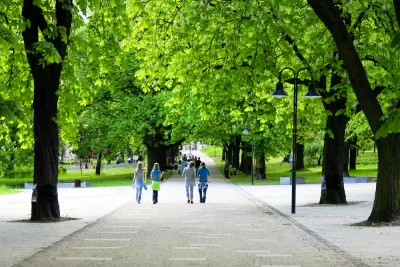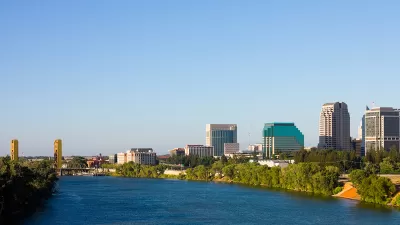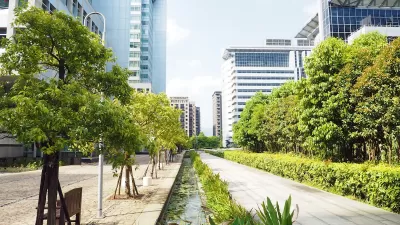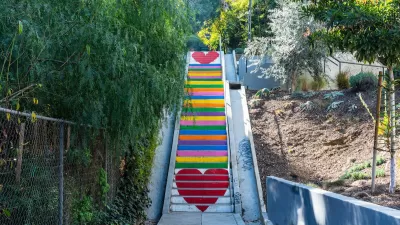According to this study, existing "leafy infrastructure" in ten of the world's largest cities confers an estimated $505 million in benefits. Planting more could magnify the effect.

Jessica Leigh Hester covers a study that puts a dollar value on the positive effects of urban forests. "A team of researchers led by Theodore Endreny of SUNY's College of Environmental Studies and Forestry sought to quantify how leafy infrastructure pays dividends in 10 chock-full cities—and the extent to which the benefits could compound if those areas went greener."
"Many of trees' benevolent effects are general and constant: They help mitigate the heat-island effect, for example, and curb pollution. But the more specific benefits dispersed by trees vary from place to place." Stormwater remediation, for example, doesn't account for much in dry Cairo.
Across the 10 megacities, the study estimates an average of $505 million is saved annually. Lower air pollution makes up the bulk of these savings.
- $482 million per year in decreased air pollution (predominantly from smaller particulate matter, a byproduct of combustion and diesel engines)
- A benefit of $11 million annually through improved stormwater remediation
- A half-million saved in heating and cooling costs
- $8 million in C02 sequestration
FULL STORY: How Much Are Trees Worth to Megacities?

Planetizen Federal Action Tracker
A weekly monitor of how Trump’s orders and actions are impacting planners and planning in America.

San Francisco's School District Spent $105M To Build Affordable Housing for Teachers — And That's Just the Beginning
SFUSD joins a growing list of school districts using their land holdings to address housing affordability challenges faced by their own employees.

The Tiny, Adorable $7,000 Car Turning Japan Onto EVs
The single seat Mibot charges from a regular plug as quickly as an iPad, and is about half the price of an average EV.

Seattle's Plan for Adopting Driverless Cars
Equity, safety, accessibility and affordability are front of mind as the city prepares for robotaxis and other autonomous vehicles.

As Trump Phases Out FEMA, Is It Time to Flee the Floodplains?
With less federal funding available for disaster relief efforts, the need to relocate at-risk communities is more urgent than ever.

With Protected Lanes, 460% More People Commute by Bike
For those needing more ammo, more data proving what we already knew is here.
Urban Design for Planners 1: Software Tools
This six-course series explores essential urban design concepts using open source software and equips planners with the tools they need to participate fully in the urban design process.
Planning for Universal Design
Learn the tools for implementing Universal Design in planning regulations.
Smith Gee Studio
City of Charlotte
City of Camden Redevelopment Agency
City of Astoria
Transportation Research & Education Center (TREC) at Portland State University
US High Speed Rail Association
City of Camden Redevelopment Agency
Municipality of Princeton (NJ)





























